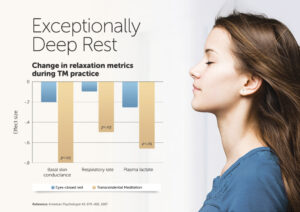 Dr. Pamela Peeke is an internationally renowned physician and expert in nutrition and integrative medicine. She is the founder of the Peeke Performance Center for Healthy Living, a lifestyle expert for WebMD, a columnist for Prevention Magazine, chief medical correspondent for Discovery Health TV, blogger, speaker, and author of the New York Times best-seller “The Hunger Fix”, which offers a solution to the problems of overeating and food addiction.
Dr. Pamela Peeke is an internationally renowned physician and expert in nutrition and integrative medicine. She is the founder of the Peeke Performance Center for Healthy Living, a lifestyle expert for WebMD, a columnist for Prevention Magazine, chief medical correspondent for Discovery Health TV, blogger, speaker, and author of the New York Times best-seller “The Hunger Fix”, which offers a solution to the problems of overeating and food addiction.
In her writing and presentations, she offers insight and advice into the problem of overeating. Here are some of her tips that can help you establish healthy eating habits.
Dr. Peeke often remarks that if food is made from a plant, eat it; if it is made in a plant, avoid it. She explains that every time food is digested, the brain produces dopamine. This is what gives us the feeling of being full and satisfied. Fresh food that we prepare ourselves produces a baseline or normal level of dopamine, which is healthy for the body. Processed foods, however, tend to be very high in salt, sugar, and fat, and when these are consumed, the brain starts producing extremely high levels of dopamine. The brain recognizes when dopamine levels are too high and compensates for this overstimulation by reducing the number of dopamine receptors. The body then notices the reduction in dopamine, and in response, starts craving more food to increase the dopamine level. This starts the food addiction cycle: a battle between the brain trying to protect itself from overstimulation and the body wanting a greater feeling of satisfaction.
 Her advice: eat less processed or “hyper-palatable” foods and eat more natural foods that contain lower levels of salt, sugar, and fat. In addition, start reducing the amount of salt, sugar, and fat that you add to your food. Over time, eating more wholesome food will cause your cravings to decline and it will be easier to maintain a healthy weight.
Her advice: eat less processed or “hyper-palatable” foods and eat more natural foods that contain lower levels of salt, sugar, and fat. In addition, start reducing the amount of salt, sugar, and fat that you add to your food. Over time, eating more wholesome food will cause your cravings to decline and it will be easier to maintain a healthy weight.
 Dr. Peake highly recommends walking every day. Using your muscles helps keep off the fat and lifts your mood. Walking is simple, does not require expensive equipment or gym memberships, and gets you out of doors. The fresh air alone can lift your mood and help you better manage your food intake.
Dr. Peake highly recommends walking every day. Using your muscles helps keep off the fat and lifts your mood. Walking is simple, does not require expensive equipment or gym memberships, and gets you out of doors. The fresh air alone can lift your mood and help you better manage your food intake.
 She also is concerned with the psychological effects of overeating. One negative psychological effect of dieting is fear of the scale. If weighing yourself is something you dread, use the clothes test instead. Once a week, check to see how your clothes are fitting. Don’t try to evaluate your weight by a number but by your comfort level. And don’t buy into the media’s perception of what your body should look like; just start eating a more natural diet and see where that takes you.
She also is concerned with the psychological effects of overeating. One negative psychological effect of dieting is fear of the scale. If weighing yourself is something you dread, use the clothes test instead. Once a week, check to see how your clothes are fitting. Don’t try to evaluate your weight by a number but by your comfort level. And don’t buy into the media’s perception of what your body should look like; just start eating a more natural diet and see where that takes you.
If you don’t have friends or family members to help you choose a healthy lifestyle, join Weight Watchers or similar groups. The psychological support can be invaluable.
Dr. Peeke encourages everyone to find their “true deep” reason for wanting to be healthy. She highly recommends the Transcendental Meditation technique to reduce stress and balance the emotions that can drive us to processed food and the dopamine war. Regularly releasing stress through the TM practice creates an internal sense of happiness. This in turn reduces our need to try to find that in food.
“l began to study Transcendental Meditation and it is probably the smartest thing I ever did.” —Dr. Pamela Peeke
 Dr. Peeke tells us that Transcendental Meditation is good science. There is a strong correlation between the experience of the deep rest of TM and the reduction of many chronic conditions such as depression, mood disorders, insomnia, imbalanced eating habits, and the weight gain that comes from those disorders. She also explains that when you meditate, you enliven the pre-frontal cortex. That is the part of your brain that makes decisions. This enlivening will help you make better food decisions. The combination of increased internal satisfaction and a better functioning pre-frontal cortex are two useful tools against food cravings.
Dr. Peeke tells us that Transcendental Meditation is good science. There is a strong correlation between the experience of the deep rest of TM and the reduction of many chronic conditions such as depression, mood disorders, insomnia, imbalanced eating habits, and the weight gain that comes from those disorders. She also explains that when you meditate, you enliven the pre-frontal cortex. That is the part of your brain that makes decisions. This enlivening will help you make better food decisions. The combination of increased internal satisfaction and a better functioning pre-frontal cortex are two useful tools against food cravings.